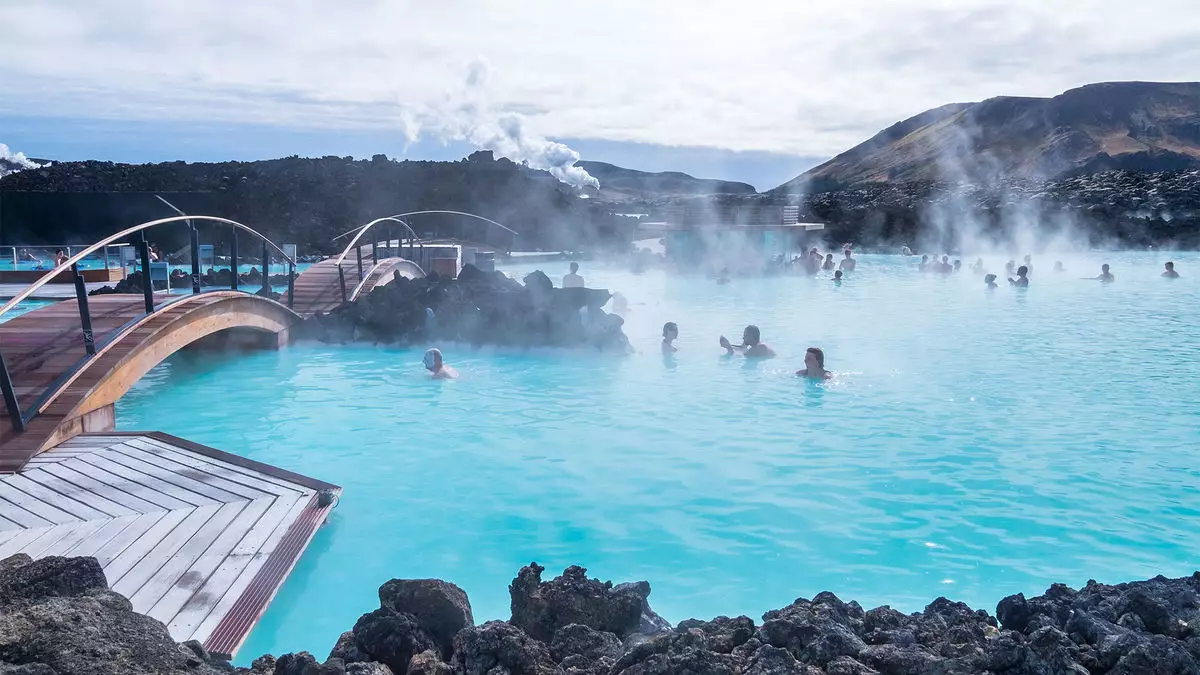Iceland, known for its captivating landscapes and world-famous attractions like the Blue Lagoon, is currently facing uncertainty due to a series of volcanic eruptions on the island’s Reykjanes Peninsula. The Blue Lagoon, considered a trademark in Icelandic tourism, has experienced intermittent closures as a result of this geological activity. These closures have raised concerns about the overall stability of Iceland’s tourism ecosystem. The volcanic eruptions have not only disrupted the operations of the Blue Lagoon but have also impacted nearby hospitality facilities, including hotels, restaurants, and retail stores. This disruption poses a challenge for the Icelandic Tourist Board, which is tasked with managing the crisis and ensuring accurate communication with travelers.
Impacts of the Volcanic Eruptions on Tourism
The recent volcanic disturbances have cast a shadow over Iceland’s booming tourism industry, which was projected to see record numbers of visitors in the coming years. The potential consequences of the Blue Lagoon closures are yet to be fully grasped, leading to a need for recalculations in the tourism forecast. Despite the challenges posed by the eruptions, there is an emerging trend of volcano-related tourism, attracting adventurous travelers seeking unique experiences. However, the Icelandic Tourist Board is tasked with promoting alternative geothermal attractions to mitigate the effects of the Blue Lagoon disruptions on tourism.
The Blue Lagoon has managed to maintain a level of resilience amidst the volcanic disturbances, with bookings remaining stable and promising for the upcoming season. The attraction’s operators have put in place comprehensive evacuation plans and communication procedures to ensure guest safety during emergencies. Full refunds and alternative accommodation arrangements are offered to guests affected by closures, showcasing the Blue Lagoon’s commitment to customer service and safety. Despite the unpredictable nature of volcanic activity, the Blue Lagoon remains a popular destination for travelers visiting Iceland, thanks to its proactive response to crisis situations.
Adaptations in Travel Plans
Travel agencies like Stay Gold are adapting to the challenges posed by the Blue Lagoon closures by offering alternative experiences to their clients. By substituting activities like ATV tours or luxury hotel stays in Reykjavik, travelers can still enjoy a memorable trip to Iceland even in the absence of the Blue Lagoon. The emphasis on visitor safety and contingency planning has allowed travel agencies to reassure clients and maintain their confidence in booking Icelandic vacations. While concerns about volcanic activity persist, travelers are encouraged to explore the diverse attractions and natural wonders that Iceland has to offer, beyond the iconic Blue Lagoon.
As Iceland navigates through the uncertainties brought about by the volcanic eruptions, the tourism industry is poised to adapt to the changing landscape. With a focus on safety, communication, and customer service, destinations like the Blue Lagoon can continue to thrive despite periodic disruptions. The resilience of Iceland’s tourism ecosystem, coupled with innovative responses to challenges, will shape the future of travel in the region. By prioritizing guest experiences, promoting alternative attractions, and maintaining transparency in times of crisis, Iceland can emerge stronger and more resilient in the face of unforeseen challenges.


Leave a Reply